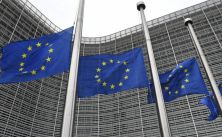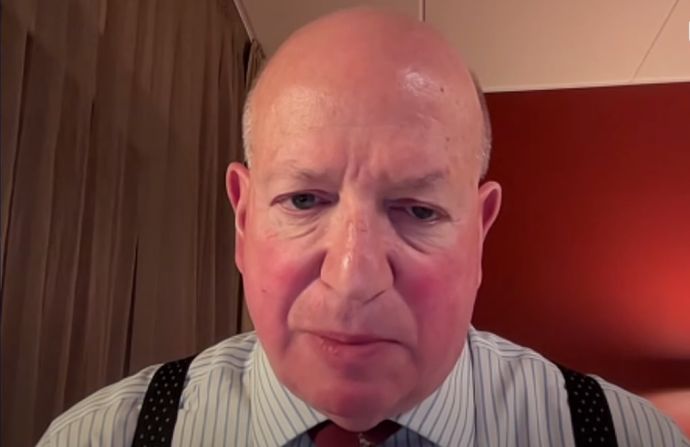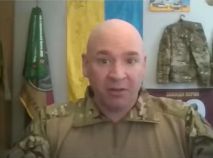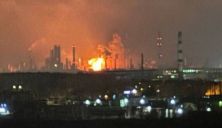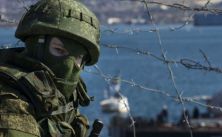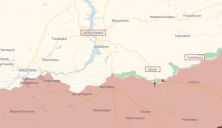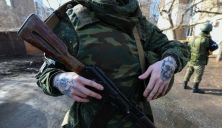What role could European peacekeepers play in Ukraine’s future, and how might it affect the balance of power?
James Sherr, Senior Fellow at the International Centre for Defence & Security, offers his expert insights. We’ll also uncover the realities of North Korean troop involvement in Kursk Oblast—are they turning the tide for Russia or just cannon fodder? Don’t miss this eye-opening discussion.
— There have been talks about two major topics. The first one is North Korean deployments in the course of Russia and the quality of those soldiers—their mere presence as a third party in this war. The second topic is the possibility of European peacekeepers—not NATO or the European Union, just peacekeepers from European countries—in Ukraine. What can you tell me about those two topics?
— First, about North Korea, there are several things to be said. Obviously, this is very useful to Russia, which—like Ukraine, but in a different way—is under considerable and growing pressure when it comes to manpower.
The North Korean troops are, in very stereotypical terms, extremely well-trained. They are very physically fit, far better than the average Russian troops. However, they are not a game-changer in battlefield terms for all kinds of reasons: tactical, operational culture, language, and command culture, among others.
But the key point about them, if we look at this in a broader context, is that they should be a game-changer for the United States.
It is very puzzling to me—and not only to me—that they don’t appear to be. The presence of North Korean troops fighting a war in Europe—even in the European part of Russia—is not seen as a dramatically unacceptable development in the United States, at least not yet.
The Republican chairman of the House of Representatives’ Intelligence Committee wrote a letter to President Biden in which he highlighted what a significant departure this was—what a significant red line had been crossed—and how it was absolutely urgent for the United States to take immediate action. He even called for a classified, closed session of the committee with President Biden.
Of course, this has not happened. But one of the key reasons why the United States ought to be very interested is that, obviously, Russia has given North Korea something in return—and a considerable amount in return. They are giving them enormous technological assistance, particularly with their nuclear program, and that adds to all of the tensions and threats developing in the Far East and the East and South China Seas.
So, that is the main reason why their presence is so important.
— So, you’re telling me that the deployment of these trained troops, effective or not, threatens United States interests both in Europe and in the Far East. Am I correct?
— Absolutely. This has been said by leading Republican members of the U.S. Congress. I haven’t yet heard President-elect Trump say anything about this. The Biden administration has been very keen not to express its views—whatever they are—publicly. And I’m not the only person who finds this puzzling.
My belief is that their departure from the entire theater of war, if not from European Russia altogether, should be made a precondition for negotiations of any kind.
If you had told President Truman or President Eisenhower that, 70 years later, after the end of hostilities in the Korean War, North Korean troops would be fighting a war in Europe, they would have jumped out of their graves.
— Well, there are Chinese troops stationed in Belarus. They’ve been there lately for drills with the Russian and Belarusian armies. Can you see European armies stationed in Ukraine?
— This is a much bigger question. President Zelenskyy just had meetings with the EU, with a number of key European leaders—those most strongly supportive of Ukraine. Of course, he does not confide in me personally, but even if he did, it’s very early to know what his response to this meeting is.
On the basis of what I’ve read, I find it very disappointing. One of the clear messages that seems to have emerged is that, in the absence of the United States, it is not realistic—and for all intents and purposes not possible—for Europe, or European NATO allies, to directly intervene in the war in Ukraine.
So, what is basically being said is that, in the absence of U.S. participation, when NATO speaks about defense or security guarantees, they are not speaking about proper defense guarantees. That is to say, a treaty to go to the defense of the country concerned—Ukraine’s defense. They’re talking about assurances.
— Assurances? Are we talking about the Bucharest Memorandum in different variations?
— Precisely. We know this is completely inadequate. This is why Zelenskyy himself has said that nothing less than a guarantee from the United States will suffice.
But it shouldn’t be this way. The starting point of realism in Europe has to be that we cannot count on the United States to always be present. We must do things ourselves.
A coalition of the willing—a number of states, including Estonia, for example—needs to devise practical measures to assist Ukraine directly, even in the absence of U.S. participation. This could, incidentally, become a major source of leverage on the United States, which might welcome such efforts—or they might not.
But we need to act in the West’s interests and Europe’s interests, not only in Ukraine’s interests. That means taking risks. If we say, as we often do, that if Ukraine is defeated by Russia, the risks to Europe will be greater than if we do what is necessary to defeat Russia, then we’re contradicting ourselves if we don’t put ourselves in a position to support Ukraine directly—even without the U.S.
— That seems strange, given that the combined economies of the EU and the UK are far greater than Russia’s GDP. European economies are centered on cooperation, capital, and producing goods for people’s lives, while Russia’s economy is focused on military—offensive, not defensive, technologies. Isn’t it time for Europe to centralize at least part of its economy on defense?
— What you’re saying underscores a basic truth: wars are not won or decided by GDP ratios. They’re decided by the conversion of national attributes—technological, economic, social, psychological, and military—into usable military power.
It is understood by most NATO countries that this is true. But our societies and political systems have been oriented for generations in profoundly different directions. Changing this requires a systematic approach and real steps.
There have been steps taken, particularly in the Baltic region. Denmark, for instance, significantly increased its defense budget only eight months ago, but now they’ve concluded it’s still inadequate and are planning something more ambitious.
We all need to go through this process. It requires leadership and an understanding that the alternative priorities of most citizens and voters may not be addressed in the way they want.
— And yet, many in Europe may not recognize that we are in a pre-war period.
— Precisely. The Chief of the British Defense Staff said more than a year ago that we are in a pre-war period. He understands this; I understand this; Ukrainians understand this.
The question is: how many decision-makers in Europe truly understand it? And of those who do, how many are prepared to take the risks and practical steps consistent with that understanding?
I doubt very much that President Zelenskyy was pleased with what he heard in Brussels.
— I see two trends in Europe. In some countries, election campaigns focus on preparation for possible future wars, like in Germany. In others, like Romania, candidates promise peace with Russia rather than preparing for conflict. Who will win, in your opinion?
— It depends on the country. The West is not one entity; it is many.
This is why Russian leadership is so confident they are winning this war—and even nearing the end of it. The big question remains: what will Donald Trump do?
He believes he can end this war soon, though perhaps not in 24 hours. But he cannot. Putin has no interest in ending the war. Fighting is Russia’s only leverage over Ukraine and Europe.
We have mutually opposed, antagonistic interests.
The real question is whether Trump will understand that the problem in any peace negotiation is Russia, not Ukraine.
If he does, what will he do? Will he provide Ukraine with everything it needs, as he has hinted at? Or will he walk away entirely? We simply don’t know yet.
Read also: Jake Broe on UATV: What if Putin Dies Tomorrow?
